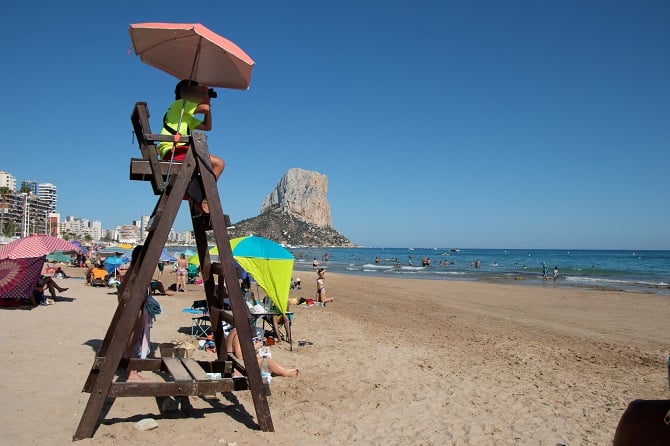DROWNINGS in Spain have hit their highest level in a decade, with 303 deaths in the first seven months of 2025 – the most since records began in 2015 – and older men on beaches making up the biggest share of victims.
Figures from the Spanish Lifesaving Federation show 92 people died in July alone, making it the fourth deadliest July on record. The May–July period saw 209 fatalities, surpassing the worst previous quarters in 2017 (194) and 2024 (187).
Andalucia leads the death toll this year with 52 drownings, followed by the Canary Islands and Valencia (39 each), Catalonia (36) and Galicia (34). Only Extremadura and Ceuta have reported no deaths so far in 2025.
The typical victim is a Spanish man over 45, often over 65, with many deaths linked to sudden health problems in the water such as heart attacks or dizzy spells. But younger swimmers are also dying in greater numbers – 66 victims aged 18 to 44 so far this year, making up almost 22% of the total.
Children remain a major concern. Nine died in July and 11 in June, bringing the annual total to 23 – many unsupervised in home or inflatable pools. Lifesaving expert Professor Roberto Barcala warns: “These deaths are quick and silent – around 90 seconds.There’s no shouting or splashing.”
READ MORE:
- Beach police patrols boosted during summer peak season in Costa Blanca tourist city
- Revealed: Tips for parents to make sure young children stay healthy during Spain’s long hot summer
- How to stay safe at the pool after two children drown on the Costa del Sol in one month
Beaches are the deadliest setting, with 50 fatalities in July, followed by 13 in pools, 10 in rivers and 19 in other inland waters. The RFESS warns of the high number of deaths in unguarded spots: in 45 cases there were no lifeguards present, and in 33 there was no patrol service at all due to the nature of the location.
“This is a catastrophic summer,” says RFESS president Samuel Gomez Mayor. “We need immediate action – extending lifeguard coverage beyond the high season and protecting inland natural environments. Prevention must start young, with school-based training in water safety.”
Campaigners are calling for national safety drives, pool fencing laws, and consistent professional training for lifeguards. Safety chiefs urge swimmers to stay calm in rip currents, never swim alone, and appoint an adult ‘water guardian’to watch children at all times.
As veteran safety campaigner Sebastian Quintana puts it: “The best lifejacket is information.”
Click here to read more News from The Olive Press.








